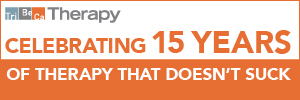Neighbors Gearing Up to Fight Recovery Facility
 There’s a new battlefront in the war over Lower Manhattan!
There’s a new battlefront in the war over Lower Manhattan!
First there was the (thwarted by lawsuit) move of the Criminal Summons Court to 31 Thomas, then there was the (ongoing) lawsuit against the probation office’s move to 66 John, and then there was the (ongoing) lawsuit against the NYPD’s draconian plan for World Trade Center security.
The objections to the proposed move of Exponents—which “helps people struggling with substance abuse, HIV/AIDS and reentry to the community after incarceration”—from Chelsea to 2 Washington Street haven’t reached lawsuit status yet, but there is a petition: “We the undersigned are in favor of an injunction pending a public hearing and determination with respect to the adverse and destabilizing social and economic impact on the surrounding neighborhood of opening an ex-prisoner and drug addict treatment facility at 2 Washington Street, in downtown Manhattan.” (Three of the early signers mentioned the children, natch.)
The move will be discussed tonight at 6 p.m. at the meeting of Community Board 1’s Financial District Committee.
UPDATE: The discussion at last night’s meeting of the CB1 FiDi Committee was ugly, to say the least.
 Exponents actually started out on Beach Street, before it outgrew that space and moved to Chelsea (W. 26th between Sixth and Seventh), where it’s been for 19 years; rising rents have forced it to look elsewhere. “Us being in the neighborhood increased property values,” said/joked founder Howard Josepher (right), to which one CB1 member interrupted that property values rose despite the group. According to Josepher, 99% of clients come to the facility voluntarily, and the group’s move involves an expansion. They don’t dispense any medications, including methadone, and they discourage people from hanging around outside (such as to smoke). The current location sees 50 to 60 individuals a day.
Exponents actually started out on Beach Street, before it outgrew that space and moved to Chelsea (W. 26th between Sixth and Seventh), where it’s been for 19 years; rising rents have forced it to look elsewhere. “Us being in the neighborhood increased property values,” said/joked founder Howard Josepher (right), to which one CB1 member interrupted that property values rose despite the group. According to Josepher, 99% of clients come to the facility voluntarily, and the group’s move involves an expansion. They don’t dispense any medications, including methadone, and they discourage people from hanging around outside (such as to smoke). The current location sees 50 to 60 individuals a day.
All of that my or may not have been a problem, but CB1 was in high dudgeon because the group hadn’t given them appropriate notice. (Exponents emailed CB1 on Dec. 27, and it has planned on moving in Jan. 17.) Then we got a thorough description of the process by which the state approves substance-abuse recovery facilities; in short, if I got it right, once a group like Exponents plans a move, it sends an application to the New York State Office of Alcoholism and Substance Abuse Services, and OASAS requests the opinion of the local governing unit (in this case, the New York City Department of Health and Mental Hygiene). The DOH, in turn, will weigh the community board’s recommendation, although both CB1 and the DOH recommendations are advisory. The main problem here was that Exponents was supposed to be the one who alerted CB1 to the move, and it did so very late. And if Community Board 1 members hate anything, it’s being left out. (Exponents said it had no idea the rule existed, which was easy to believe since they were clearly well-intentioned but not particularly organized.)
“You like to come to a neighborhood to destroy it!” yelled non-CB1 member Harry Poulakakos, founder of the chain that includes Harry’s Italian, Financier, and so on.
Another member of the public brought up the petition, saying it has more than 200 signatures—maybe it’s different from the one linked to above?—”and we expect a thousand in three days.” After pointing out that residents feel like Exponents is trying to sneak in in the middle of the night, she said that the group’s security would exist to protect the group’s staff “and not the children” at the adjacent preschool, Learning Experience (which plans to open a fenced outdoor playground). “You must think there’s a security risk or there wouldn’t be a need for security at all!”
The Exponents folks were gobsmacked by the reaction—they clearly don’t view themselves as a threat to any community. “Nineteen years in our current location and we’ve never had an incident,” said Josepher.
“How many of your clients are sex offenders?” yelled a CB1 member.
“No one identified as a sex offender has participated in Exponents—ever—to the best of my knowledge,” said Josepher.
The committee’s chair said that sometimes the problem with these kinds of facilities isn’t the clients so much as the people who come to prey on vulnerable people. Another member of CB1 asked the DOH rep how much it weighs whether the community needs the facility, a sentiment echoed later by the verbiage added to the resolution that its relocation is “not in the community’s interest.”
Some members of the committee were concerned that they weren’t coming across as sympathetic to Exponents’ work—and they blanched at the language in the petition when it was read—while others simply attacked Josepher. When he said that the group “does God’s work,” a CB1 member spat out his salary at him, as if you can only do good if you’re making minimum wage.
As you may be able to guess, I was shocked—no, I was horrified—at the way this community wants to close its doors on the rest of the city. (I scoffed loudly when one member said, “We’re a very open community.”) Did Exponents behave well? No. Did its members deserve to be treated this way? Absolutely not. It was embarrassing, like a congressional hearing where the politicians just want to grandstand and excoriate. Do people recovering from substance abuse really linger around schools, waiting to prey on kids? Sorry to make a bad joke, but I’d rather have my hypothetical kids next to Exponents than in a Catholic church. I have to wonder whether a group helping more well-off people would have been received this way.
The lease was signed in July; state law allows Exponents to do all its non–substance abuse work without any governmental approval, and Josepher said that the drug stuff was maybe 10% of its budget. The committee voted unanimously (10-0) to oppose the move unless there’s a public hearing with adequate notification.
UPDATE: I should clarify something. I don’t at all find objectionable the request for more time, and it’d be great if concerned residents and CB1 members took the initiative of visiting Exponents’s Chelsea location before it closes, to see what it’s all about; likewise, Exponents would be wise to get any and all letters of reference that it can. My beef was with the knee-jerk reaction that because we think we don’t need such a facility, we don’t want it among us. We are part of a much bigger city, and we have chosen to live in an area that is central and served by a lot of mass transit—exactly the kind of area that any organization serving citizens from all over the city would want to locate itself in.
Update: Comments have been turned off due to spam. To have them turned back on, email tribecacitizen@gmail.com.














Where were the petitions when this opened? http://www.hazelden.org/web/public/new_york_recovery_housing_tribeca.page
If a half-way house if well run, you’ll never know that it is there. But why let facts get in the way? BTW, the correct terms are “recovering substance abuser” and “ex-offendor.”
I wonder how many AA, and NA meetings there are in the ‘hood. Those probably don’t count because Mom, Dady, Hubby, Trophy Wife and prep school child – have a disease called, er, substance abuse!
there are addicts in every communities, so there should be a recovery center in every communities.
Well written reaction. And these responses are right on. There’s a methadone clinic on Broadway below Canal, been there for at least 20 years. There’s a Catholic church on Church & Barclay, AA & NA meetings all the time. I can think of at least 5 lower Manh residents I know personally, some successful to the point of fame, who are in recovery of some form. Once again,akin to the resistance to the proposed courts on Thomas and W. Bway, the worry is misplaced, since all one has to do is look at the sex offender registry for lower Manhattan to see the real worry. But was there focused outrage when a woman was raped on pier 25? Nope. Because an incident will fade in time, while a clinic or court won’t be missed by potential apartment buyers’ eyes.
Welcome to the New Suburbs. It’s about property values. At least the public has learned CB1 doesn’t want to hear that spoken out loud.
What turns me off about our area is a sense of entitlement. We live in a huge city and are part population that includes mentally ill, drug addicted and in some cases violent individuals. The city needs to create facilities like this in order to keep at least some sense of control. Just because we live in a “nice and family friendly” part of Manhattan, doesn’t mean we are excluded from sharing our space with the city.
Here is a question which doesn’t appear to be answered: what percentage of 60 daily ex-cons and drug addicts who will be attending this facility live or work in this neighborhood? If they live or work somewhere else – shouldn’t the facility be placed in that community?